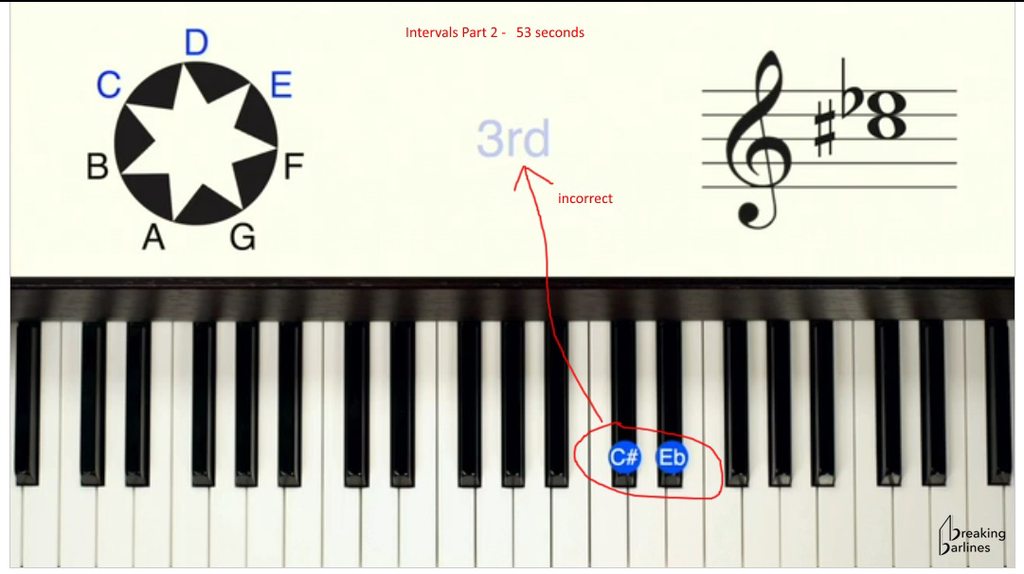lilypad Here is a good one. I've taken 3 classes from him at out local community college. He explains things very well.
Breaking Barlines
Generally very good. Thanks for posting that lilypad. There was one thing I detected in the Intervals Part 2 lessons after going to that link -- is a mistake/error in the lesson. At 53 seconds, the interval C# and E-flat is a 'second' (major second). The teacher told people that it is still a third. Also noticed that the Part 1 intervals lessons doesn't cover black coloured notes. This was the exact reason I had to arrive for myself at LINK for intervals.
I think it's great that he attempted to explain intervals though!
One method I use is ... know what the lower note is. Eg. C#. And then know the C# major scale. The first two notes of that scale is C#, D# (aka E-flat). C# and E-flat spans two notes in the C# major scale. So ... major second is the interval.
Another method is to just know that C# to E-flat spans three raw notes (any colour ... black and/or white) -- which is a condition associated with a major second interval. That is ... a span of three raw notes will mean a major second interval. A span of 5 raw notes would mean major third.
Alternatively ... another approach is to know that the number of raw notes (black or white) in-between C# and E-flat is one note ... which is another optional method for detecting or knowing a major second.
For comparison ... a major third will have three raw (black and/or white) notes in-between the two notes being compared ... eg. C and E has 3 raw notes in-between them (major third). Also, a 'perfect fifth' has 6 raw notes in-between .... eg. C and G has 6 raw notes in-between ... perfect fifth condition.
Often ... it doesn't matter if one doesn't understand intervals or how to identify them etc. Those methods are just ones to consider for those that want to understand without getting taken down the wrong or vague path by lots of 'teachers'.
